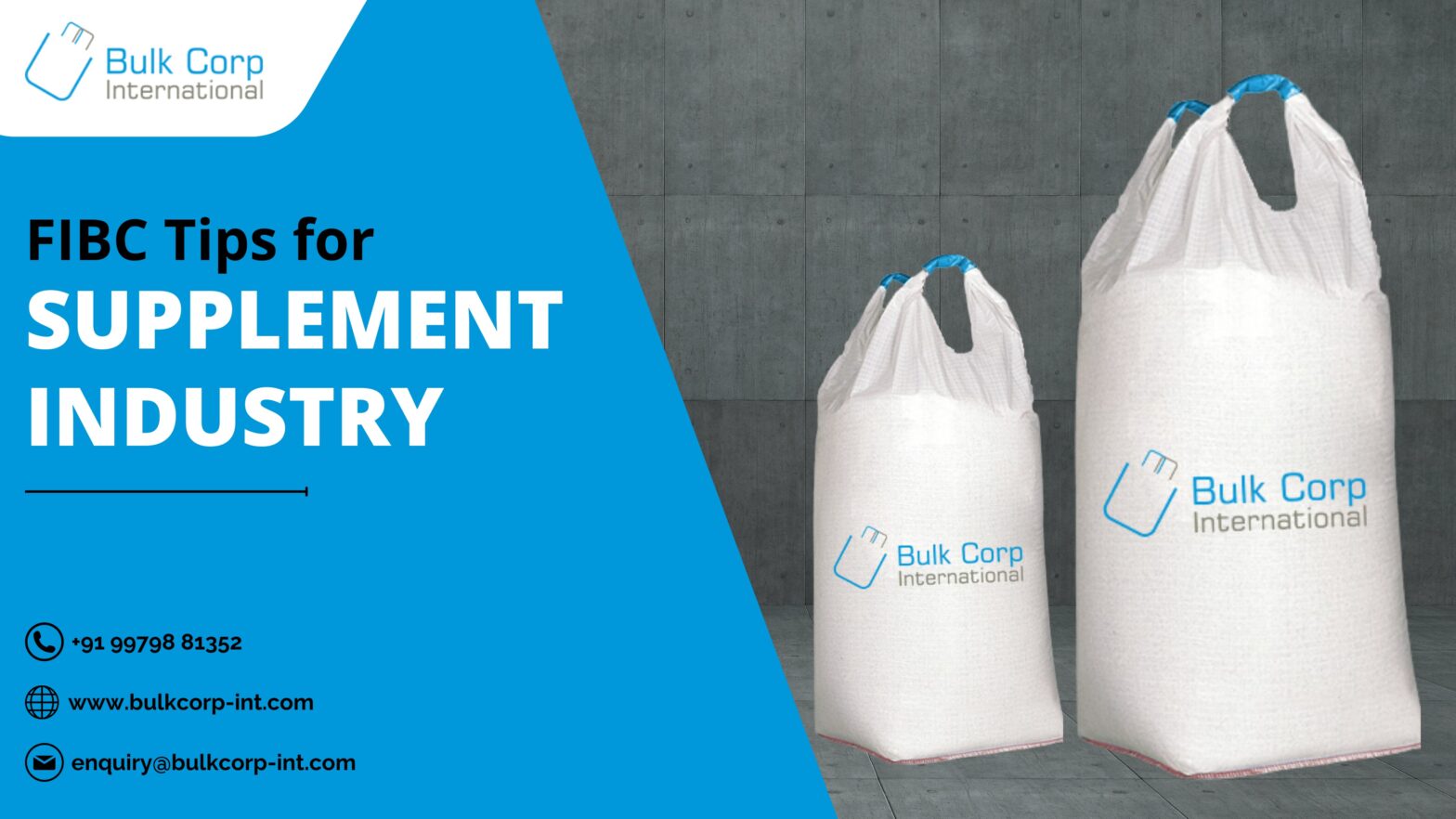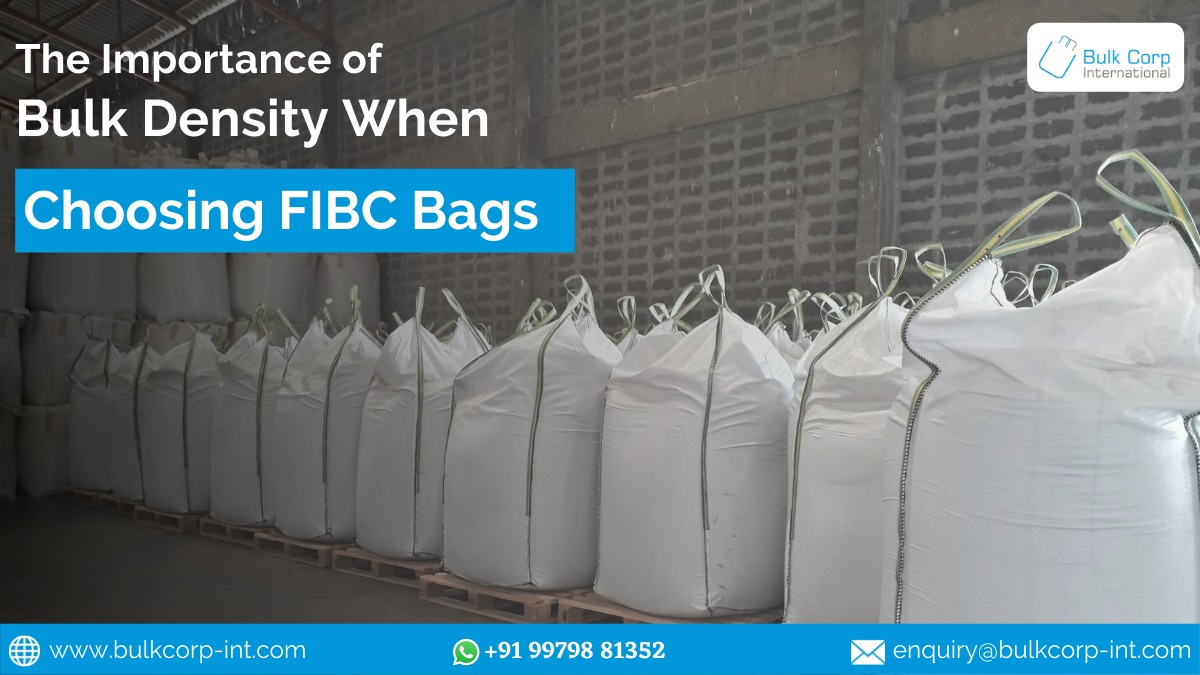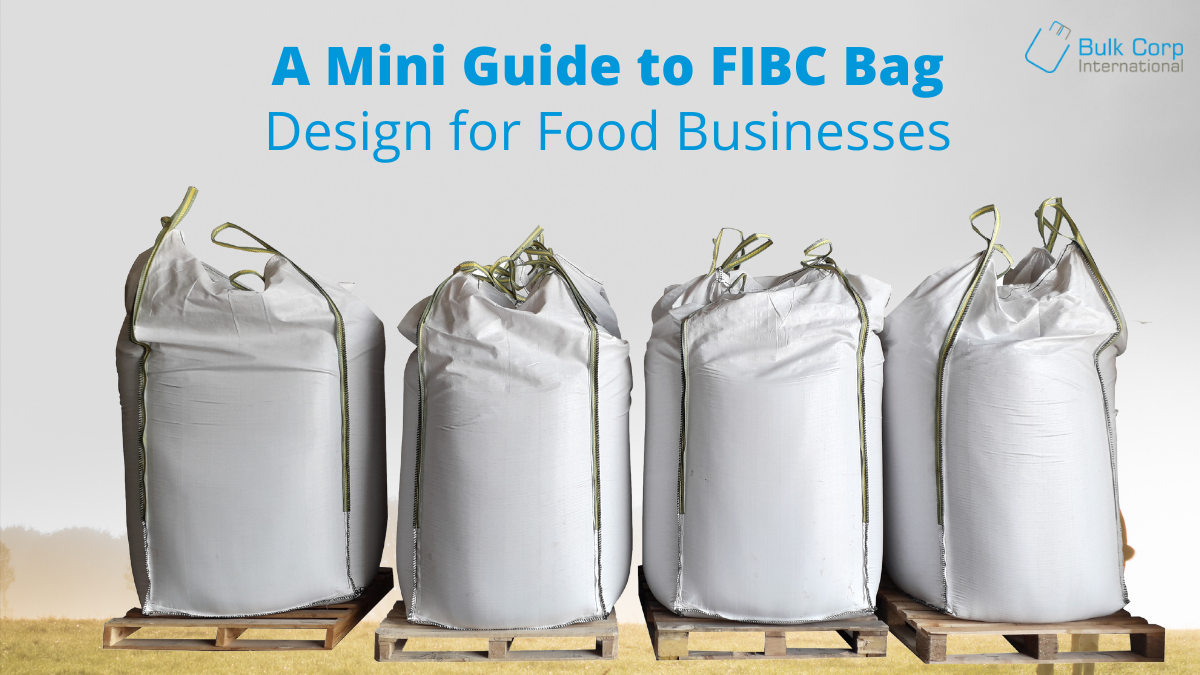Category Archives: FIBC Bags
 FIBC Tips for The Supplement IndustryJune 29, 2022FIBC BagsWhy do you think FIBC bulk bags are such a hit across diverse industries? They are durable, flexible, conductive, UV stable, spill-free, and versatile. They have high resistance to moisture, contamination, stress, and wear. One industry deserves special mention for which FIBC seems like the perfect fit: The food supplementary industry. In this blog, we explore the nature of the supplement industry and why FIBC bags are best suited for it. What […]continue reading
FIBC Tips for The Supplement IndustryJune 29, 2022FIBC BagsWhy do you think FIBC bulk bags are such a hit across diverse industries? They are durable, flexible, conductive, UV stable, spill-free, and versatile. They have high resistance to moisture, contamination, stress, and wear. One industry deserves special mention for which FIBC seems like the perfect fit: The food supplementary industry. In this blog, we explore the nature of the supplement industry and why FIBC bags are best suited for it. What […]continue reading The Importance of Bulk Density When Choosing FIBC BagsApril 12, 2022FIBC BagsDo you know the bulk density of your product? Bulk density can make a big difference in the packaging of your product, especially for dry, flowable goods that are best stored in FIBC (flexible intermediate bulk container) bags. A product’s bulk density will impact the flow of powder or grain through the packaging equipment; hence, […]continue reading
The Importance of Bulk Density When Choosing FIBC BagsApril 12, 2022FIBC BagsDo you know the bulk density of your product? Bulk density can make a big difference in the packaging of your product, especially for dry, flowable goods that are best stored in FIBC (flexible intermediate bulk container) bags. A product’s bulk density will impact the flow of powder or grain through the packaging equipment; hence, […]continue reading A Mini Guide to FIBC Bag Design for Food BusinessesMarch 22, 2022FIBC BagsProduct spillage during transit or contamination due to poor packaging are vital concerns for those running a food business. Such occurrences can negatively affect your company’s revenue figures and reputation. How can you adequately safeguard your food product packaging against wasteful spills or contamination? Choosing FIBC bags is your answer. FIBC bulk bags are the […]continue reading
A Mini Guide to FIBC Bag Design for Food BusinessesMarch 22, 2022FIBC BagsProduct spillage during transit or contamination due to poor packaging are vital concerns for those running a food business. Such occurrences can negatively affect your company’s revenue figures and reputation. How can you adequately safeguard your food product packaging against wasteful spills or contamination? Choosing FIBC bags is your answer. FIBC bulk bags are the […]continue reading




